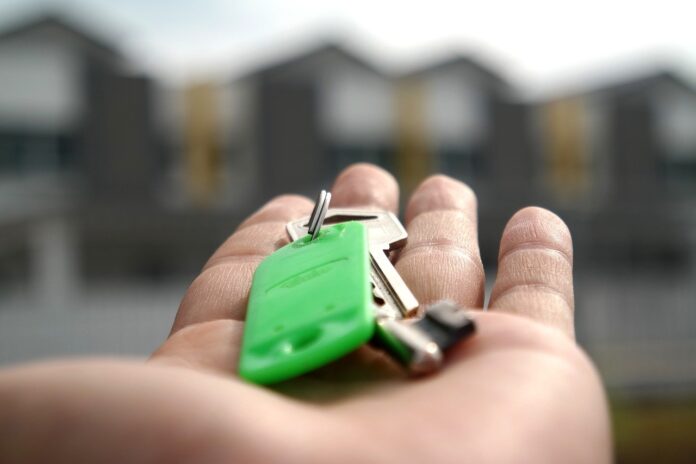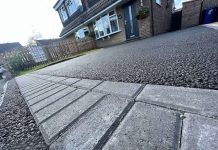Reading the latest headlines about property sale prices in the UK, it can be tempting for homeowners that have been thinking about selling their properties to finally do so, hoping to taking advantage of what appears to be ongoing demand for homes. But knowing the right way to sell, and the best way to sell at the highest possible price, can be difficult.
When you’re ready to find a buyer for your property, you’ll usually have to choose between enlisting the services of an estate agent, contacting a quick home buying company or trying your luck with a property auction. Each method has its own benefits and disadvantages, so it’s important to research them all in advance.
Auctions might be an attractive option for some homeowners because of the potential that they could make a attractive profit from the sale. That’s because they operate just the same as auctions for personal items and anything else – an often-unpredictable sale in which certain homes might prove to be incredibly popular with the people attending the auction, and many bids are placed so that the final sale price is pushed higher than whatever minimum reserve price the auctioneer and the seller have agreed to for the property.
If your home proves to be that popular then yes, you could make a larger profit from the sale compared to trying to sell through an estate agent or using a fast home buyer. But unfortunately the unpredictable nature of auctions also means such an outcome is not certain.
What’s the process for deciding on a property price at auction?
Should your property not receive any bids then it is deemed to have not sold, and you’ll have to start the process of selling all over again whether via auction or using another method.
And if you only get a single bid at the minimum reserve price then your home will be considered legally to have sold at that value. Auctioneers often encourage homeowners to set the reserve price below market value because they believe it will help the property to get more attention from auction attendees compared to higher priced homes, and that these prospective buyers will then try to outbid each other at the auction with the goal of buying your house or flat. Yet that might not happen, so you need to prepare a budget for selling your home this way that still shows a profit for selling at reserve price even after subtracting the auctioneer’s fees.
That’s why deciding on a reserve price at auction can be a complicated situation. You want to settle on a reserve price that will entice as many potential buyers as possible, but you also need to choose a price that ensures you’ll still make a profit if the home sells at that price.
In addition to reserve prices, you will also offer the auctioneer a guide price which is the minimum amount you expect your home to make from the sale but differs from a reserve price because it is not a hard value below which you refuse to accept any bids from buyers. The guide price is what will typically be included in listings advertising your property before the sale, and is often lower than the reserve price to again maximise interest from prospective buyers.
But the reserve price is the amount that is the most important for homeowners, because that’s the specific value at which you agree to sell your home, whereas the guide price is just advisory. For example, if the guide price for your property is £100,000 and the reserve price is £125,000, your home will not be considered sold unless you receive a bid of at least £125,000.
Once you and the auctioneer have agreed to these prices for selling your property, they will be able to include the guide price in the listing that they use to advertise your home before the auction. The reserve price will remain confidential between you and the auctioneer. The listing will feature photographs of the interior and exterior of your property, important information such as its total size and how many bedrooms it has, and more. The auctioneer will place this listing on their website, in local newspapers and elsewhere to drum up interest before the auction.
The reason why the prices that you select are so important is that many potential buyers who are searching for properties on an auction house’s website often do so by entering the maximum amount they are willing to pay for a home. If your guide price exceeds this value then your property would be excluded from their searches and they would never see the listing.
And as noted above, it’s crucial that you also account for the fees that you will have to pay the auctioneer for selling your home, as well as the expenses of having your solicitor create a legal pack for your property, when trying to decide on your ideal reserve and guide prices. These costs can often be quite high and reduce a homeowner’s sale profit by a large amount.
Three tips to help secure your property’s best possible auction price
Auction Link have offered a few tips available to homeowners who would like to sell their properties via an auction but are also concerned about having to agree to a reserve price that is below what they would like to achieve.
- Do you own research to get estimates for your home’s valueIf an auctioneer tells you their suggested reserve price for your home, never simply agree to list it at this value. Do some research to find out several estimates for your property’s worth in order to get a more accurate and hopefully higher price. Ask estate agents to give you free quotes for how they think they could sell your home. Use online property value calculators, but remember that these sometimes use old data when projected the sale value of homes. And ask several different auction houses for their suggested reserve prices, so you could pick the highest price if you wanted to.
- Create a budget for your home sale and share it with the auctioneerFor many homeowners, their top priority when selling a house or flat is to achieve as high a sale price as possible. You should create a budget that details the projected rough estimates of the fees of selling via auction, different reserve prices that you could expect to set, and costs of purchasing your next home. This will help to identify reserve prices that would only make you break even or, even worse, actually lose money on the sale. You should only ever agree to an auction reserve price where you’re comfortable, because this is one of the main goals that almost everyone has when selling a property.
- Consider making home improvements before listing the property for saleIf the property that you’re trying to sell has any negative qualities then this could lower the overall projected value of the home, and in turn prompt the auctioneer to encourage you to set a lower reserve price than you might actually want or need. Problems with homes could include the presence of the invasive species Japanese knotweed in the garden, dry rot, or subsidence. Calculate whether you can spare the time and money to fix those problems, because doing so could help to increase the total value of your property and therefore the auctioneer might suggest a higher reserve price.
Understand the pros and cons to decide on using a property auction
Many homeowners have successfully sold their flats or houses through a property auction and made a respectable profit, even after deducting whatever commission and other fees their auctioneer and solicitor charged. It’s a very viable option for selling your home that can potentially boost your sale proceeds if everything works right and your property is in high demand.
However, as detailed above, it can be hard to strike a balance on the opening minimum reserve price at an auction between a value that will help the homeowner increase the profit and a price that the auctioneer believes should be lower to get more attention from potential buyers.







